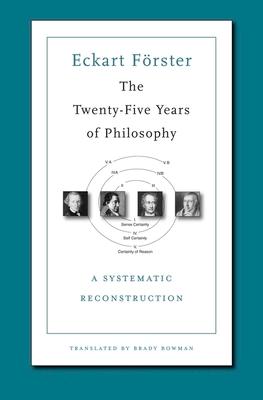Kant declared that philosophy began in 1781 with his Critique of Pure Reason. In 1806 Hegel announced that philosophy had now been completed. Eckart Frster examines the reasons behind these claims and assesses the steps that led in such a short time from Kant's "beginning" to Hegel's "end." He concludes that, in an unexpected yet significant sense, both Kant and Hegel were indeed right.
"Presents a novel interpretation of the development of German idealism that is rich in both historical depth and philosophical insight...Frster sets forth a historically nuanced and philosophically discerning interpretation of the central debates of the era."--Peter Yong, Philosophy in Review "[Frster's] book does not disappoint...The amount of material covered by Frster is impressive...Frster's book is rich in specificity...Wherever the discussion goes, it is going to have to go on by taking Frster's big picture and all his detailed accounts into account."
--Terry Pinkard, Notre Dame Philosophical Reviews "Frster's command of the historical sources is most impressive. Moreover, this book is clearly written, and Bowman's translation is commendable. Scholars and graduate students will welcome this masterpiece."
--J. M. Fritzman, Choice
